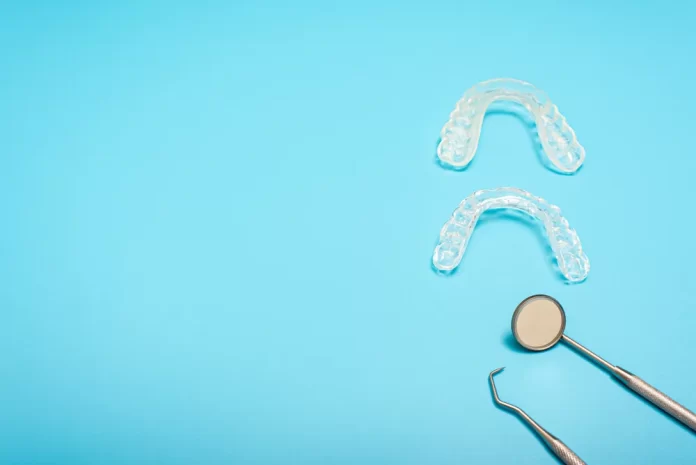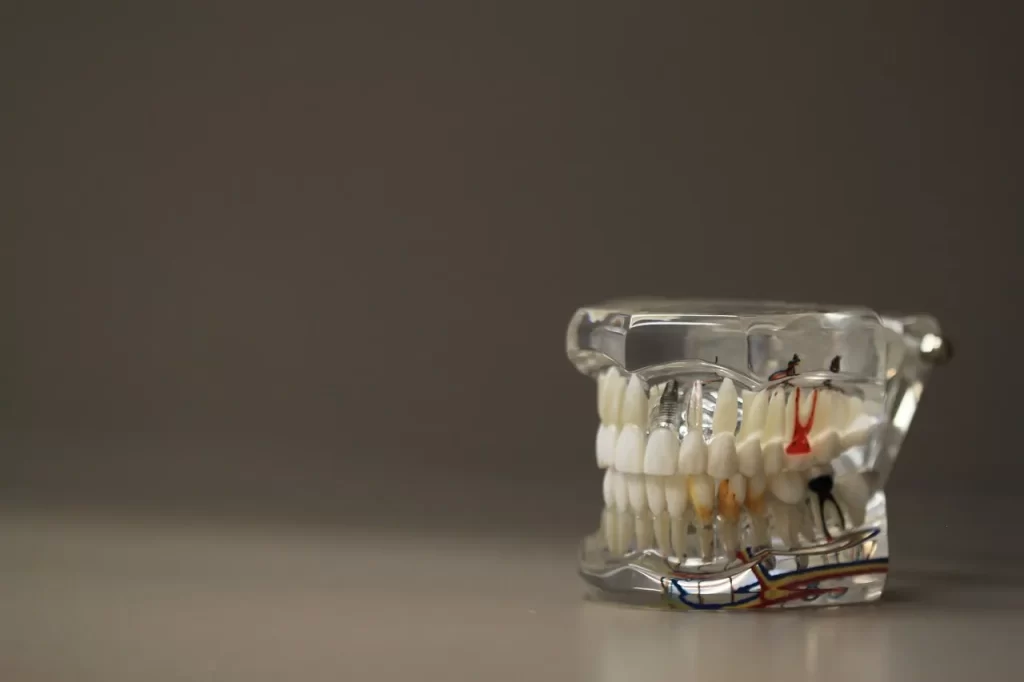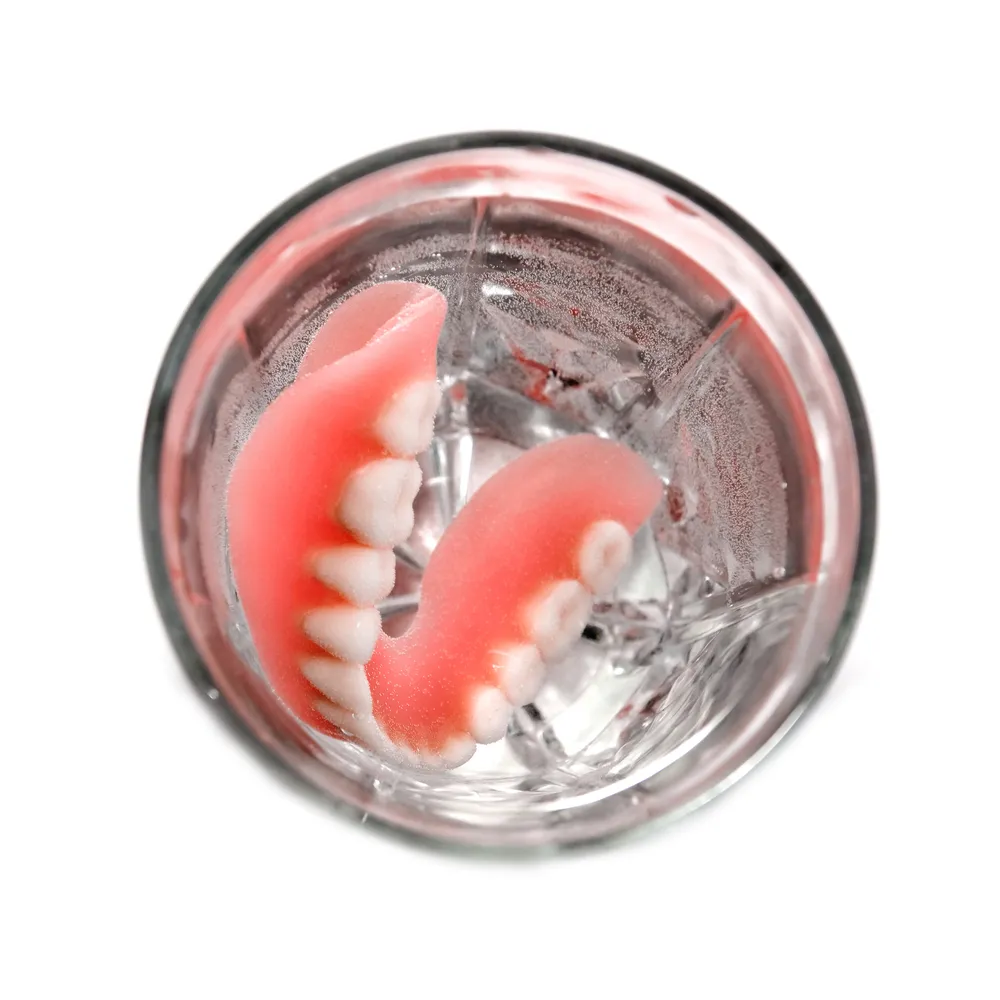
If you are about to have your first dentures, you must be wondering about one question, can you sleep with dentures in your mouth? While it’s possible to sleep with dentures, it’s generally not recommended for a few reasons. Wearing dentures for a long time can irritate and inflame your gums and soft tissues in your mouth. This is because dentures can hold bacteria and food particles, which can cause infection or oral health issues.
Sleeping with dentures can make them more likely to move or get damaged. As you toss and turn during sleep, your dentures may slide or come out, causing discomfort or injury.
Sleeping with dentures: Can you sleep with dentures?
You may think sleeping with your dentures is a convenient way to save time and hassle, but you may be doing more harm than good to your mouth and dentures. Sleeping with dentures can cause several problems, such as irritation, infection, damage, and discomfort. Here are some compelling reasons why sleeping with dentures is not recommended:
Dentures need to rest
Your gums and the underlying bone tissues need time to rest from the dentures. Keeping the dentures in during sleep prevents this rest period and can lead to irritation, inflammation, and sore spots. Giving your gums a break from the dentures at night is essential for the long-term health of your gums and oral tissues.
Dentures can break or warp
Sleeping with dentures increases the risk of getting broken, cracked, or warped during sleep. As you sleep, your mouth tends to be less lubricated. This can cause the dentures to get dried out, chafe against each other, and potentially break. It is best to soak dentures overnight in a solution to keep them hydrated and prevent breakage.
TMJ problems
Wearing dentures overnight, especially if not fitted properly, can lead to excess strain on your jaw joints and muscles, causing pain, soreness, and TMJ problems. Resting your jaw from the dentures during sleep helps prevent these issues.
Gag reflex
Dentures, especially new dentures, can trigger your gag reflex during sleep when your throat is more relaxed. This can cause you to gag, choke or, in some cases, even vomit. Removing dentures at night avoids this problem.
Poor sleep
For many people, sleeping with dentures leads to less restful sleep as the dentures can be uncomfortable overnight. Your sleep quality will likely improve if you get into the habit of removing your dentures before going to bed.
The health of natural teeth
For those with some remaining natural teeth, keeping dentures overnight accelerates the rate of deterioration of the remaining teeth and promotes further tooth loss. Giving your natural teeth a break from the dentures at night will help prolong their lifespan.

Potential risks and complications of sleeping with dentures
Here are some possible risks and complications of sleeping with dentures:
The Tooth Fairy Strikes
Sleeping with dentures in can cause tooth loss over time. The dentures press on your natural teeth during sleep, making them loose and fall out early. The Tooth Fairy may visit you, but she’s taking your teeth!
The JawBreaker
Wearing dentures in bed can stress your jaw joints and muscles, causing pain, soreness, and TMJ syndrome. Your jaw needs to relax and rest just like the rest of your body during sleep. Dentures stop this and slowly break your jaw. Not a good look!
The Dry Mouth Menace
Saliva flow drops during sleep, making your mouth dry out, especially with the foreign material of dentures there. Dry mouth syndrome can cause gum inflammation, sores, oral thrush, and bad breath. You may wake up with dentures glued to your gums like Velcro! Stay hydrated.
Also read about: Best 5 Tips on How To Sleep With A Prolapsed Bladder?
How to care for your dentures at night
Caring for your dentures at night is essential to maintain good oral hygiene and to ensure the longevity of your dentures. Here are some steps you can take to care for your dentures at night:
- Remove your dentures before going to bed: It is essential to remove them at night to give your gums and mouth a chance to rest and recover.
- Clean your dentures: After removing them, clean them with a soft-bristled toothbrush and mild soap or denture cleaner. Be sure to clean all surfaces of the dentures, including the crevices and grooves.
- Soak your dentures: Place your dentures in a denture cleaning solution or water to keep them moist and prevent them from drying out or warping.
- Rinse your mouth: After removing your dentures, rinse your mouth with warm water to remove any debris or adhesive that may have accumulated during the day.
- Practice good oral hygiene: Brush your gums, tongue, and remaining teeth with a soft-bristled toothbrush to remove bacteria or plaque.
- Store your dentures in a safe place: Keep your dentures in a clean, dry, and safe place, away from children and pets.
By following these steps, you can ensure that your dentures are well-maintained and that your oral health is protected.

FAQs
Conclusion
Research has found that sleeping with dentures leads to a higher chance of getting sick with diseases like pneumonia and problems like plaque on the gums and tongue, gum inflammation, and oral hygiene issues.
So, in summary, sleeping without dentures is best for the health of your gums, mouth, and teeth and getting quality restorative sleep. Developing a consistent habit of removing your dentures at night and soaking them in solution will serve you well in the long run. Sweet dreams!

